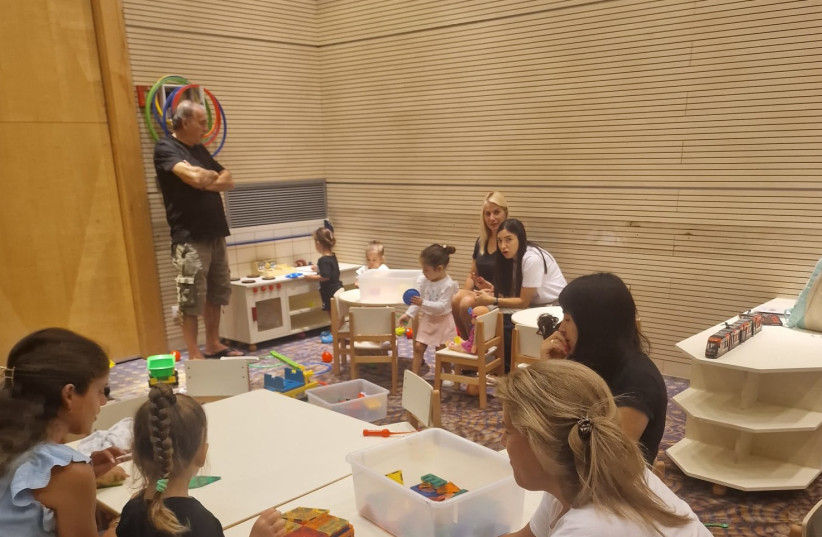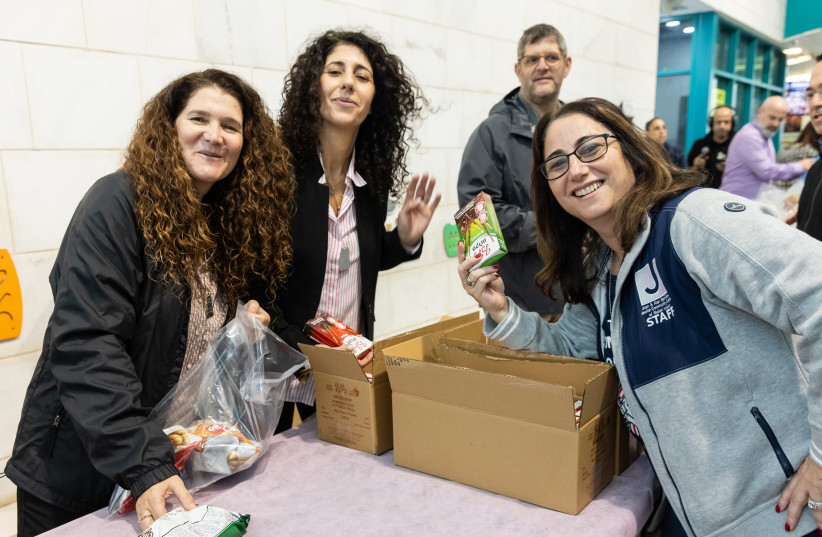“If you want to have a strong nation and a strong society, you need to have strong communities,” says Adv. Ari Zuckerman, Chairman of the Board of Directors of the Israel Association of Community Centers (IACC). Since its founding in 1969, the IACC’s credo has strengthened Israeli society and its communities. Following the Jewish Community Center model in the United States, it operates on local, regional and national levels, with 1,000 centers in 151 towns and villages throughout Israel, touching all sectors and populations of Israeli society.
While community centers in Israel once were primarily places where youngsters gathered for sports activities, today, they are a focal point for communal, social, recreational, and cultural activities based on a vision that includes residents, local government, and the business community working together to meet the needs of the community.
As with many institutions in this country, the events of October 7 thrust Israel’s community centers into a new position of responsibility and importance. “The IACC is the largest civil society organization in Israel, serving almost 2 million people,” explains Zuckerman. When the events of October 7 took place, we were the main player in dealing with the evacuated population.”
Growing from immediate needs of the Israeli people
When the war began, the IACC managed the immediate needs of the population in Israel’s northern and southern areas through its community centers, helping to organize the evacuation process and dealing with the immediate needs of the population when they were still in their homes. Residents of Sderot were evacuated from the city’s community center to Eilat, where the local community center welcomed them and took them in. In Israel’s north, Metula and Kiryat Shmona residents were evacuated from each town’s community center to the community center in Tiberias.
However, as Zuckerman explains, bringing the evacuees to the community centers was just the beginning. “We started with the youth, creating more than 60 daycare centers for infants and afternoon daycare, continuing to deal with teenagers, which is a big challenge,” he says. He notes that the life of the evacuees in the hotels has not been easy after the trauma they have experienced.

“Our task was to occupy them and to give them relief from what they went through,” says Zuckerman. “We initiated activities for 140 groups for the evacuated youth. We created 14 clubs and youth centers, and we hired 50 counselors to help them and provide emotional support and support their activities.” To further ease their pressure, the IACC offered a wide range of after-school sports activities for thousands of evacuee children who had to cope with attending school in unfamiliar surroundings.
Zuckerman adds that the IACC has offered numerous other activities, including cyber camps, trips to Shefayim, and many more activities. He reports that these activities provided respite and relaxation for the children. “This really gave them relief and a sense of something new that they’re happy to be doing, that distracts them from their problems.” In that vein, Zuckerman notes that a recent poll estimated that 60% of the youth who have been evacuated to hotels have reported feelings of loneliness, depression, and anxiety.
The IACC has organized cultural activities and performances– over one thousand in total – for evacuated families with the support of the Ministry of Culture and supplied clothes, food, and other essential needs. But in his view, the emotional support, through the activities, and also psychological and professional support, has been most important.
Zuckerman says that the IACC is now working on the next phase of its assistance program, which will work to rehabilitate those communities that have suffered the most severe traumas.
“I’m not speaking about physical rehabilitation,” says Zuckerman. “I’m speaking as a community – as people who want to build back their community and live together wherever they decide to go. For them, it’s a big trauma and a big question of trust. Could we go back? Should we go back? The stronger the community, the more resilient it will be and the more it will be able to rebuild.”
As part of its rehabilitation program, the IACC is attempting to identify individuals or groups among these communities who are cornerstones of the community and will work with them with teams of psychologists. “We need to address the trauma these individuals went through, and these communities went through,” says Zuckerman. “This is a long-lasting mission that we will be dealing with for the coming years.”
Integration with all parts of Israeli society
Another area in which the IACC has distinguished itself is in its relationship with the Arab community in Israel. “Our main mission,” says Zuckerman,” has been to ensure that the Arab community is with us.” The IACC has active community centers for the Bedouin community in Israel, and the community center in Rahat created an emergency center that provided food packages for both Jewish and non-Jews.
Community centers among the Arab population have absorbed Arab communities that had to flee because of the fighting. The Arab village of Arab al-Aramshe, in the Western Galilee, was evacuated, and the community center in Nazareth helped to absorb the evacuees from the town.

Zuckerman adds that the Druze community has one of the highest percentages of Israelis serving combat units. The IACC has developed a program for the community that helps support the families and provides activities for the children living in the Druze communities.
The IACC has received assistance from a number of organizations and partners to help it in its mission, including, among others, the Jewish Federation of North America, Yad Hanadiv, UJA Federation New York, Jack-Joseph and Morton Mandel Foundation, Charles and Lynn Schusterman Family Philanthropies, The Russell Berrie Foundation, The Azrieli Federation, and Strauss Group.
In summary, Zuckerman says that the war has shown Israelis that when a crisis occurs, there needs to be an answer for not only the physical needs of the community but also the emotional and communal needs.
“I see in the people of the IACC as the warriors of the home front. They’re working day and night, keeping this society strong. This is a big part of this war. Because if we want to win this war, we need to survive this war as a society.”
This article was written in cooperation with the Israel Association of Community Centers.
